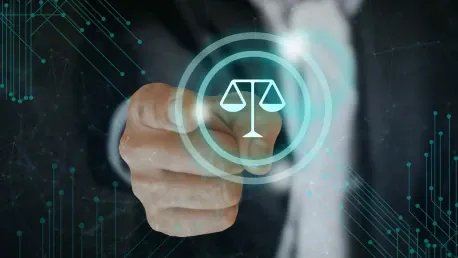Generative AI, defined as self-learning algorithms that harness existing data to generate realistic new content, has emerged as a transformative force across numerous sectors. The legal industry, traditionally considered a bastion of conservative practices and manual processes, is not immune to this wave of technological advancement. A projected market valuation of $75.7 billion by 2028 for generative AI underscores its far-reaching impact. In legal settings, this technology is redefining the way attorneys and law firms operate, streamlining workflows, and introducing efficiencies that allow legal professionals to focus on more intricate tasks. Harnessing the power of generative AI offers the potential to alleviate some of the most time-consuming functions in law, such as document review, legal research, and even predictive analytics, thereby enhancing both accuracy and productivity.
Efficiency in Document Automation and Legal Research
One of the most significant contributions of generative AI to the legal sector is its ability to automate document-related tasks. Traditional legal settings often involve hours of manual labor devoted to drafting, reviewing, and managing documents. Generative AI can automate these tasks by generating, analyzing, and summarizing legal documents quickly and accurately. This technological capability allows attorneys to concentrate on more analytical and specialized aspects of their practice. Legal virtual assistants, built upon large language models, are already making waves by offering personalized client support, parsing through vast amounts of legal information, and providing concise summaries and advice based on these analyses.
Moreover, AI-driven legal research solutions are becoming indispensable tools within major law firms. For example, Westlaw, a highly regarded name in legal research, introduced a generative AI-powered tool in November 2023. This tool aims to deliver quick, relevant answers to legal questions, streamlining the research process and boosting overall efficiency. Similarly, prestigious law firm Allen & Overy has integrated GPT-4 technology into its operations to assist in drafting legal documents, thereby moving a significant portion of its mundane tasks onto automated systems. The widespread acceptance and deployment of these advanced tools indicate a growing consensus among legal professionals about the practical benefits and reliability of generative AI applications.
Addressing Concerns: Accuracy, Reliability, and Security
As game-changing as generative AI might be, its implementation in the legal sector does come with considerable challenges that cannot be overlooked. A prominent concern revolves around the accuracy and reliability of AI-generated content. The phenomenon of “AI hallucination,” wherein false or misleading information is presented as factual, poses a significant risk. Given the high stakes involved in legal contexts, such inaccuracies could lead to severe repercussions, making the reliability of AI a priority issue that needs addressing.
To mitigate these risks, the development of legally trained AI models is crucial. These AI systems require comprehensive training using large, authoritative, and current datasets to ensure that their outputs meet the rigorous standards of legal practice. Ensuring security protocols is another necessity, as legal information often involves sensitive and confidential data. AI solutions must incorporate robust security measures to prevent data breaches and maintain client confidentiality. Equally essential is the need for continuous human oversight to validate the AI-generated content, thus combining human expertise with technological advancements to create a robust, reliable solution.
The Role of Legal Professionals in AI Development
Another critical aspect in the seamless integration of AI into the legal sector is the active involvement of legal professionals in the development and refinement of these tools. Legal experts are indispensable in fine-tuning AI algorithms to meet the stringent requirements of legal standards. Their expertise ensures that AI systems can generate outputs that are not only accurate but also contextually relevant and legally sound. This collaborative approach between technology developers and legal professionals is essential to create effective, reliable AI applications that meet industry demands.
Moreover, for law firms to fully exploit generative AI’s potential, they need to invest in acquiring the necessary tools and training programs for their workforce. Addressing talent and skills gaps is vital to smoothly transition into AI-augmented workflows. Law firms must also account for the financial outlay required to implement and maintain AI technologies. Budget allocations to cover these aspects are fundamental for firms that aim to remain at the forefront of industry advancements.
Conclusion: The Future of AI in Legal Practice
Implementing generative AI in the legal sector introduces significant challenges that demand careful consideration. A primary concern is the accuracy and dependability of AI-generated content. The issue of “AI hallucination,” where false or misleading information is presented as true, poses substantial risks. Given the importance of precision in legal matters, such inaccuracies could have severe consequences, making the reliability of AI a critical concern.
To address these issues, developing AI models specifically trained for legal use is essential. These systems need thorough training with extensive, authoritative, and up-to-date datasets to ensure their outputs adhere to the stringent standards of legal practice. Additionally, robust security measures are vital, as legal information often includes sensitive and confidential data. AI solutions must have strong security protocols to prevent breaches and protect client confidentiality. Continuous human oversight is equally important to verify AI-generated content, blending human expertise with technological advancements to form a trustworthy, competent solution.









